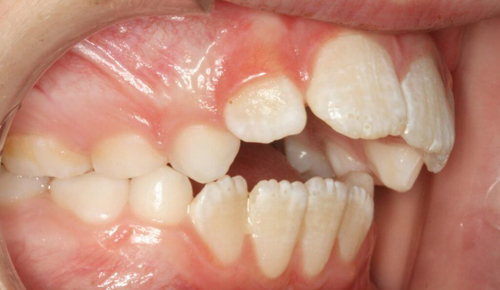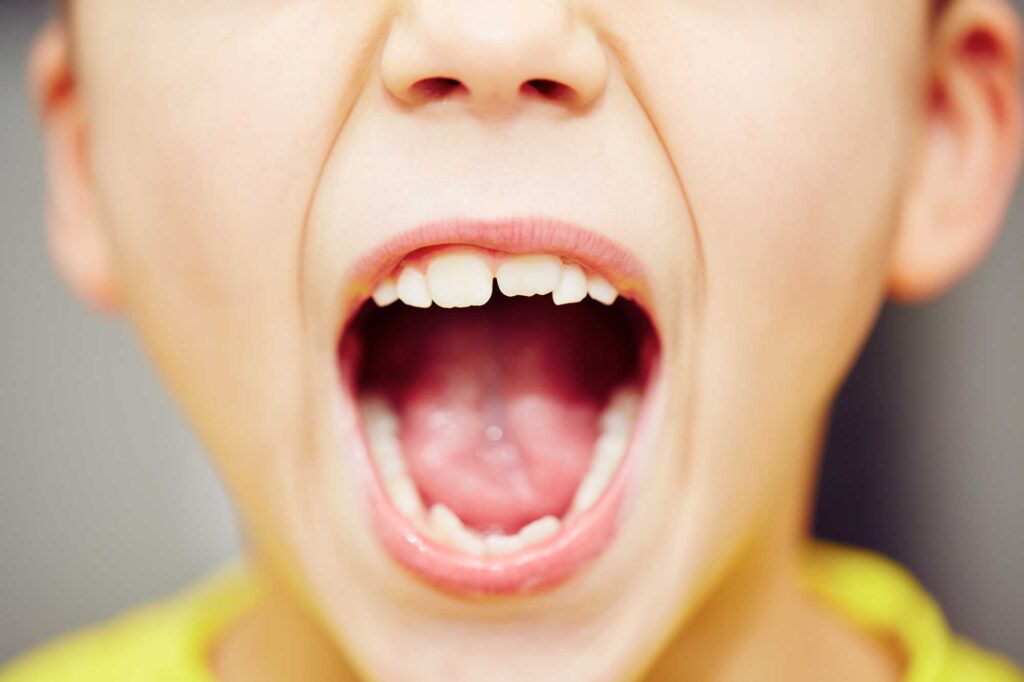Pacifiers can affect jaw and tooth development in essentially the same ways as thumb sucking. Learn more about pacifier teeth and how to prevent it. Whether or not you allow your baby to use a pacifier is a hard decision, especially if you are a new parent. Are pacifiers bad for teeth?
Teeth gaps can be fixed with different dental techniques. Some are simple and fast, others will take months. Learn more on how to fix gaps in teeth here. What are your reasons for wanting to fix your (or your child's) gap teeth? Leave us an answer in the comments below and we'll write another
pacifier teeth, pacifiers, pediatric dentistry. For many babies and toddlers, sucking on thumbs or other fingers, pacifiers and various objects is a natural way to self-soothe, helping them to explore their world, feel a sense of security and fall asleep. However, many parents worry that allowing
We asked Dr. Moore specifically about how pacifier use affects teeth and bite formation for babies and toddlers. He provided a great perspective for all of Many new parents are worried about introducing a pacifier because of side-effects they've read about or heard rumored. As Dr. Moore says, the
Dr. Thomas Miller discusses "pacifier teeth," misaligned teeth that don't close properly, caused by pacifier use or thumb-sucking. Pacifier Teeth, a dental condition that affects babies and toddlers, can be the result of either too much thumb-sucking or pacifier use.
How to Help Your Baby Stop Using a Pacifier. When it's time to wean your baby from their pacifier, try these tips to make the process easier. Use praise instead of shame.
Excessive use of pacifiers can cause abnormal tooth development as well as other health problems. Pacifiers are especially helpful for premature infants in the intensive care unit since they can shorten hospital stays and aid tube-fed babies in learning how to use a bottle.
If you're wondering how to fix pacifier teeth, the first thing you can do is to prevent pacifier teeth in the first place. Choosing to forgo a pacifier altogether is one option, although it's helpful to remember that a pacifier is preferable to finger or thumb sucking.
Can pacifier teeth correct themselves? The common teeth and oral issues caused by heavy or prolonged pacifier use are often called "pacifier teeth." Pacifiers can begin to affect teeth at around 24 months, depending on the consistency and heaviness of use. Every baby is different, and
What are pacifier teeth? We cover what you need to know below to help you make smart decisions when it comes to using a binky to soothe your little one. The term "pacifier teeth" refers to the damage that's done by a pacifier. If your growing baby continues using a binky
Pacifier teeth develop from the prolonged use of sucking on a pacifier. The damage usually shows up around the ages of 4-6, just as the permanent teeth are beginning to replace your When the mouth is closed, the front teeth do not meet. Changes occur in the roof of the mouth. How to Fix Pacifier Teeth.
He definitely had pacifier teeth. The good news is the teeth pretty much corrected themselves within a month or two after it was gone for good. We took it away at 2 when we started noticing the pacifier teeth. And he was only taking at nap & bedtime back then. I was dreading it too and first we tried
How to fix pacifier teeth Reducing the risk of sids. Wait at least one month after the baby is born to start using a pacifier. The question of whether pacifier teeth fix themselves or not differs case by case, but it also can depend on when pacifier use was stopped.
If you're wondering how to fix pacifier teeth, the first thing you can do is to prevent pacifier teeth in the first place. Choosing to forgo a pacifier altogether is one option, although it's helpful to remember that a pacifier is preferable to finger or thumb sucking. If your baby sucks their fingers or
Will My Baby Develop Pacifier Teeth? Babies love having pacifiers, but unfortunately, that doesn't mean that pacifiers are always good, especially for their teeth. Excessive use of pacifiers can cause abnormal tooth development as well as other
How to fix interproximal cavities on front teeth using dental composite filling material1. topical and local anesthetics applied2. The teeth are
Pacifier teeth refers to a condition that occurs from the prolonged use of pacifiers. The teeth of a baby start developing in the womb and continue to develop and grow throughout their childhood. During this time, anything kept in a baby's mouth for prolonged periods can negatively affect their oral and
Prolonged pacifier use and thumb sucking can cause problems with the proper growth of the mouth alignment of the teeth and changes in the shape of the Thumb sucking and pacifier use is as natural as smiling and sleeping for some babies. Does a pacifier affect teeth growth. If you offer an infant
Many parents ask if pacifiers cause teeth problems. Pacifiers can harm your kid's dental development. Here's what you need to know. Will pacifier teeth correct themselves? The answer is usually no, intervention and correction are often needed. Which is why prevention is the best bet with pacifier use.

veneers whitening tmj
Tooth Fairy Pediatric Dental ensures the best for your child's teeth. The pacifier has long been a reliable go-to for parents when it comes to providing comfort for toddlers. While many parents see it as a must-have, especially when dealing with screaming and fussy babies, there comes a time when
Seeing the answers on how to fix pacifier teeth, there's basically no home remedy for it. You just have to stop pacifier use ASAP and let your child's teeth form on their own. However, if it's too late already, you have no choice but to go to an orthodontist.
Pacifiers and Baby Teeth. Pacifiers, or binkies, are one of the first things that babies are given after birth. Many times, children will suck on their pacifier Pacifiers aren't all that bad, but their use needs to be monitored. It is recommended that a child have their first dental exam after the first tooth
What is pacifier teeth? A pacifier soothes and calms your baby. But it is not worth all the ill effects it How to break the habit? Breaking the habit of a pacifier is difficult. Once you remove the pacifier from your Pacifier teeth are curable only with orthodontic therapy. Your child will need fixed
Pacifier use is one of the most controversial decisions for new parents. There are pros and cons to pacifier use: here's how to do it the right way. Chronic pacifier use can cause chronic tooth decay, cavities, crooked teeth, narrow palate, and even sleep apnea in adulthood.
The primary concern for pacifier use is associated with, but is not limited to, dental malocclusion, or misaligned teeth. Prolonged pacifier use can cause changes in the shape of the roof of the mouth, prevent proper growth of the mouth and create problems with tooth alignment. read more.
How pacifiers affect teeth? Asked by: Ignatius Gislason. Pacifiers don't cause pacifier teeth or other dental problems if you follow simple guidelines and tips. Whether or not to give your baby a pacifier is one of the many tough decisions you have to make as a parent.

pacifier teeth pacifiers rid child aa
Pacifiers can influence the shape and alignment of your child's teeth and jaw. It can move the front teeth forward and you may notice your child developing While they may contribute to oral health complications, pacifiers do offer several benefits for parents and children. According to the

Pacifier teeth is a condition in which a baby's teeth grow in crooked or misaligned. After long-term exposure, the teeth and gums adjust to accommodate the pacifier. This may cause the upper teeth to jut forward, which causes bite problems later on. Thankfully, these issues are preventable.
"Pacifier teeth" is a real problem, but it can be prevented. Even though baby teeth are temporary, they are still important and susceptible to cavities and other dental problems. They also influence how adult teeth will form.

orthodontic
How to Stop Pacifier Use. Though we can fix pacifier teeth, preventing misaligned teeth or malocclusion by weaning from the pacifier early is always preferable. Of course, taking away a baby's pacifier by age one or two sounds great in theory but for many parents, we know it can be a challenge.

crooked pacifier deformities malnourished orthodontics

teeth sucking due protruding habit treatment jaw upper oral



